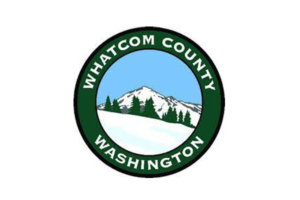As the events surrounding George Floyd’s murder caused a welcomed reckoning, we all heard many companies respond with statements of beliefs regarding diversity, equity, and inclusion, and commitments to advancing DEI in their organizations and work. You didn’t hear from us at that time. The reasons are layered, from a sense that the very nature of our work tells the story of who we are and what we value, to a concern that as we responded to help our clients address the fierce needs in their communities we didn’t have the capacity to step back, have our own honest reckoning, and put forth a statement of values that we could all stand behind.
It’s still hard to find room for this intentional dialog. We’re making some progress. A core group met over several months to audit all of our internal and external processes to evaluate and reimagine everything we do through a DEI lens — from recruiting staff to kicking off a project with our clients. I credit the team for their energetic commitment and good ideas, which are working their way into our systems and practices.
We had to acknowledge that even though a hallmark of food system planning is community engagement, because we most often work as outsiders and rely on our clients to invite their stakeholders into the work, this doesn’t always result in inclusivity. Sometimes our clients don’t realize it despite their truly good intentions, and we need to help them become more aware.
There are roles we all must be willing to play if we are to dismantle injustice in the food system. We believe we can be influential. Our clients trust us because of our food system knowledge, strategic expertise, rigorous methods, and level of service. This trust gives us a platform to help our clients ensure the stakeholders they engage represent the diversity of the community, and that the strategies they pursue benefit them as much as possible.
We are fortunate to know injustices exist mainly because we read a lot about them, but our work also brings us face to face with people for whom the issues are not conceptual. They are reality. These individuals can teach us not only what they want to see change, but also how they can be involved in the process. For example, how to support a single parent so they can attend a community meeting. How to provide language services so that immigrant and refugee groups can chime in. How to reach people with insecure housing so they can participate in the feedback. This is more than an invitation — it is actively seeking out and meeting people where they are. These are harder methods, but avoiding them can lead to solutions that exclude the very members of the community the initiatives set out to serve. Creating a more just food system won’t be easy, because it certainly hasn’t been easy for those who have been treated unjustly in creating the current system.
As the leader of an organization that itself serves many stakeholders, I must consider how New Venture Advisors embodies these values through its own core ideology. We don’t have a written mission statement or credo, but I believe it is evident to everyone who works at NVA that we exist to bring about human flourishing for all people — our clients, their stakeholders, and ourselves — by building more equitable and sustainable food systems through meaningful and life-giving employment. Our flexible work model recognizes people care about much more than their job, but also their families, their communities, their health, our Earth, and other interests that give their lives meaning and joy — including other employment. It is a balancing act that we all work very hard to steady. After 12 years, NVA sometimes still feels like an experiment, but one that I hope moves us deeper into this work with greater authenticity and impact.
Image: fizkes / Shutterstock



